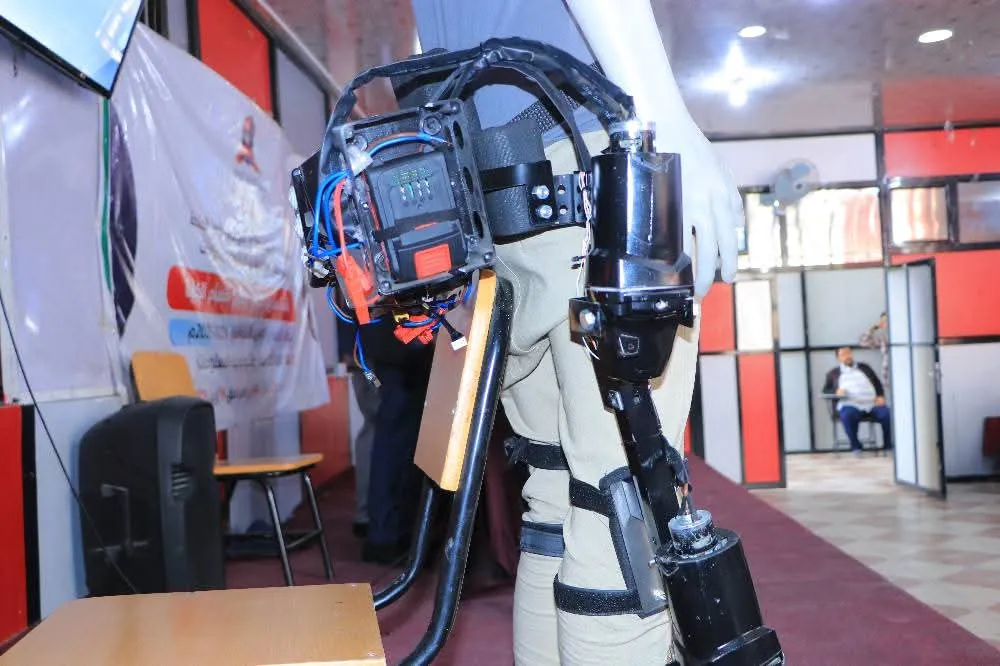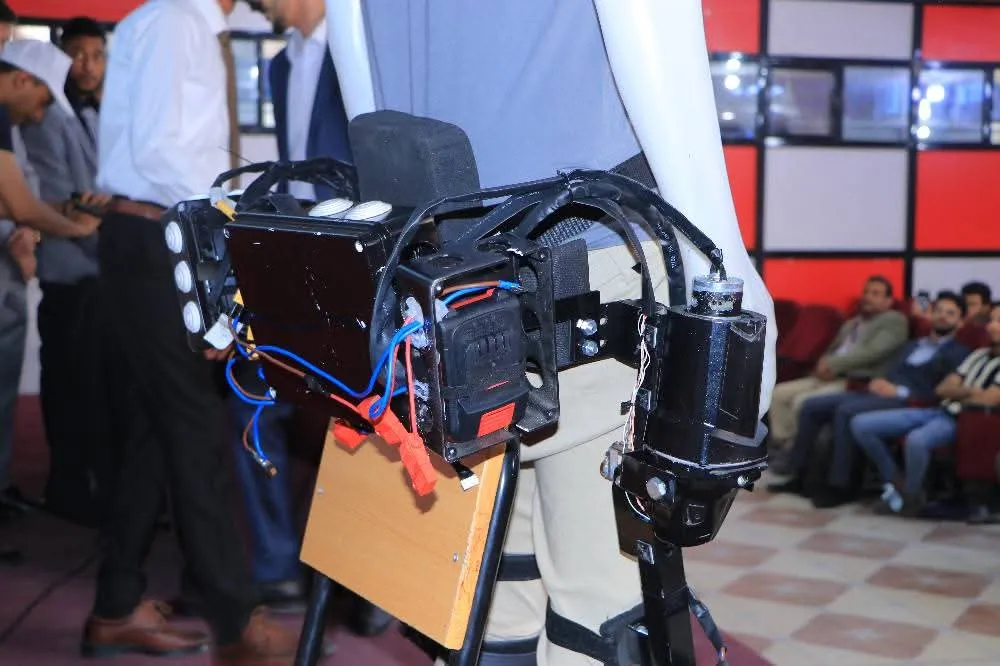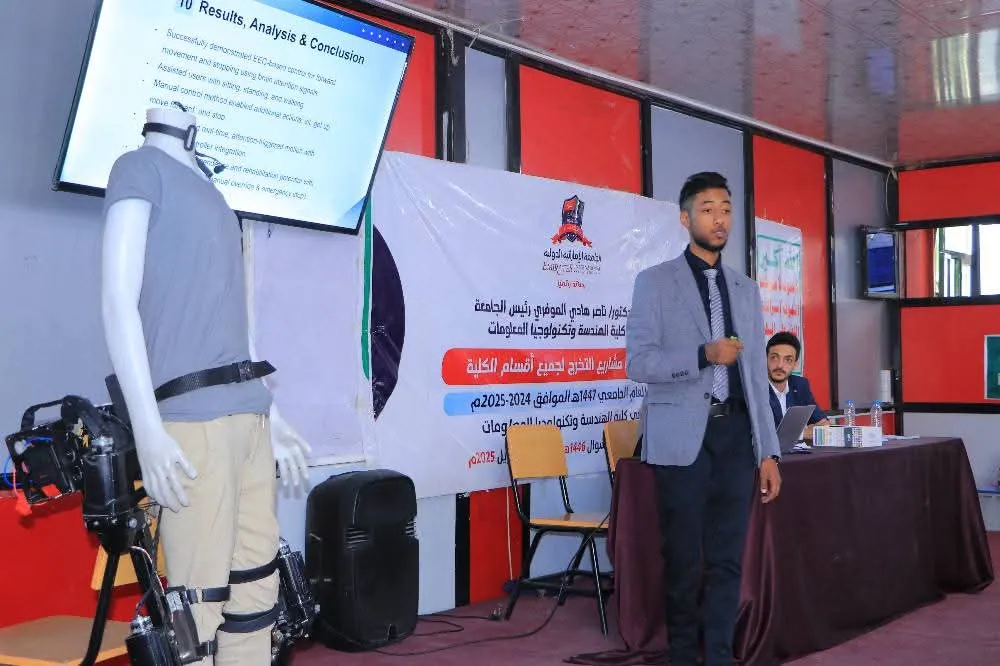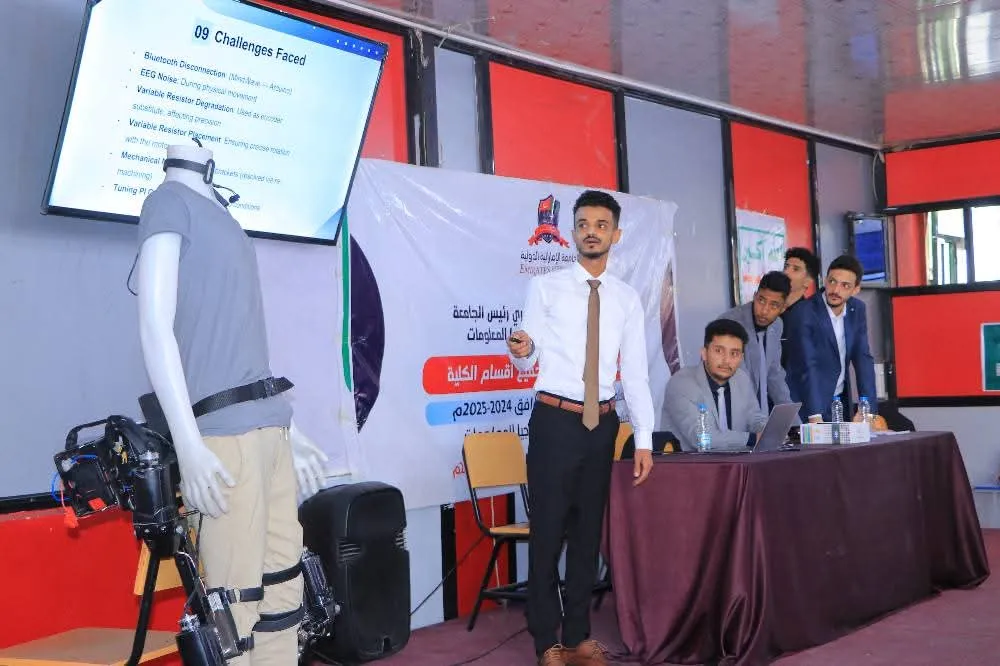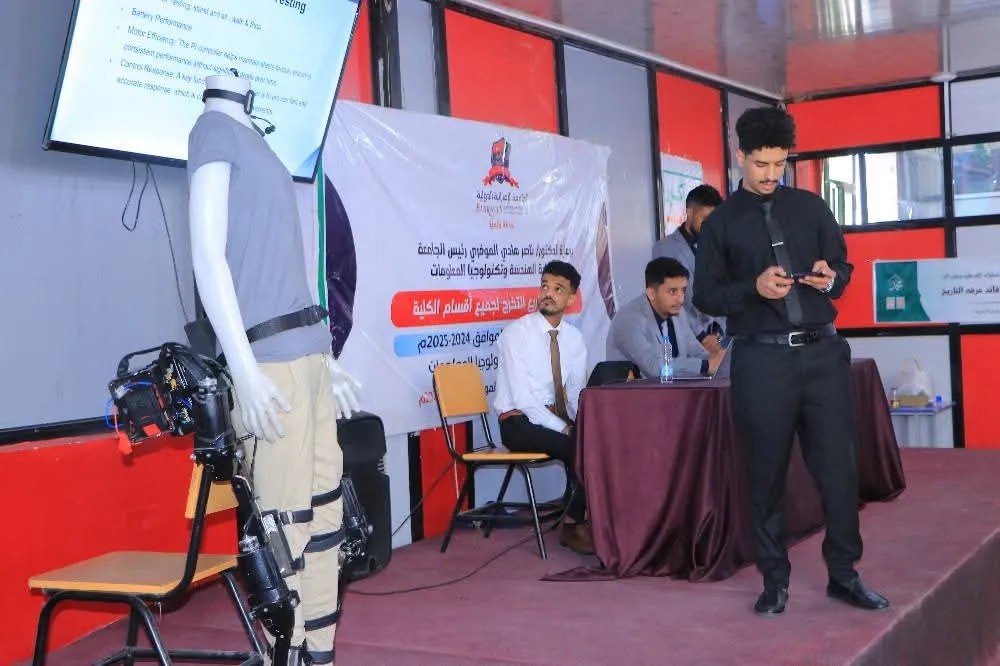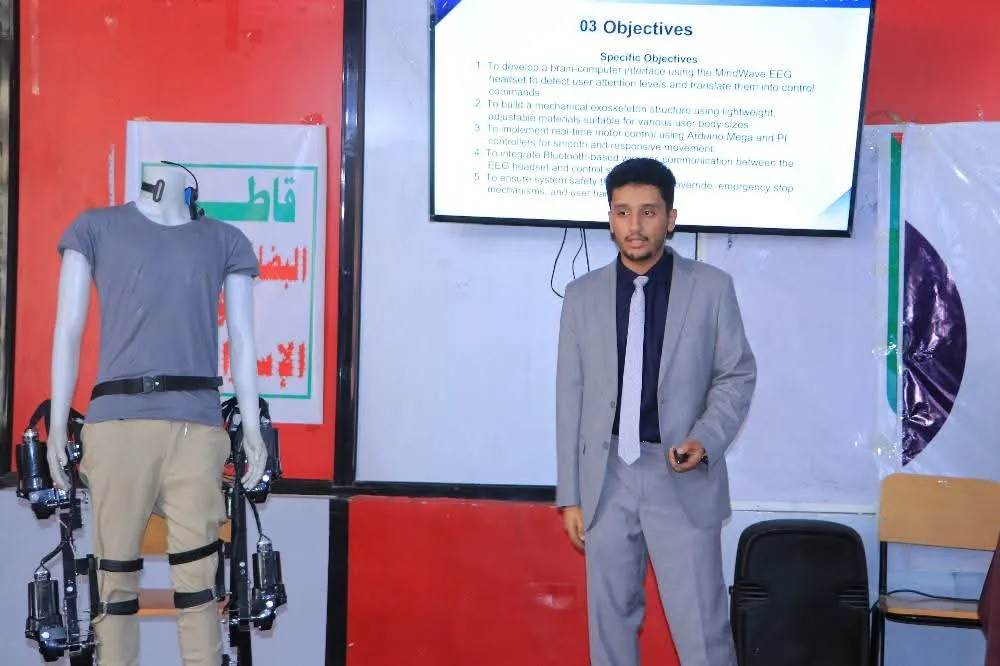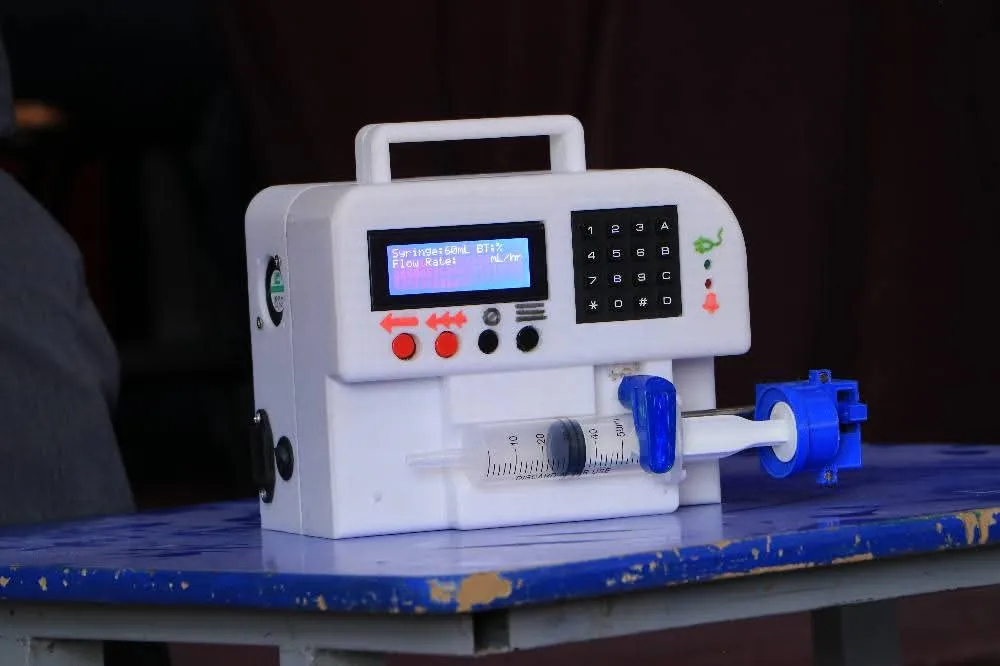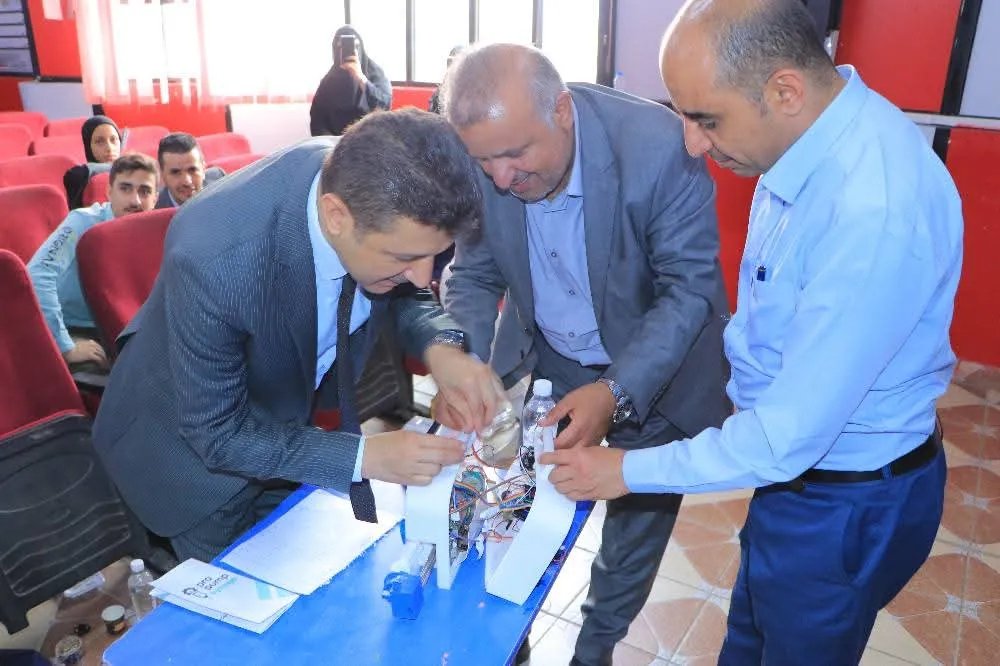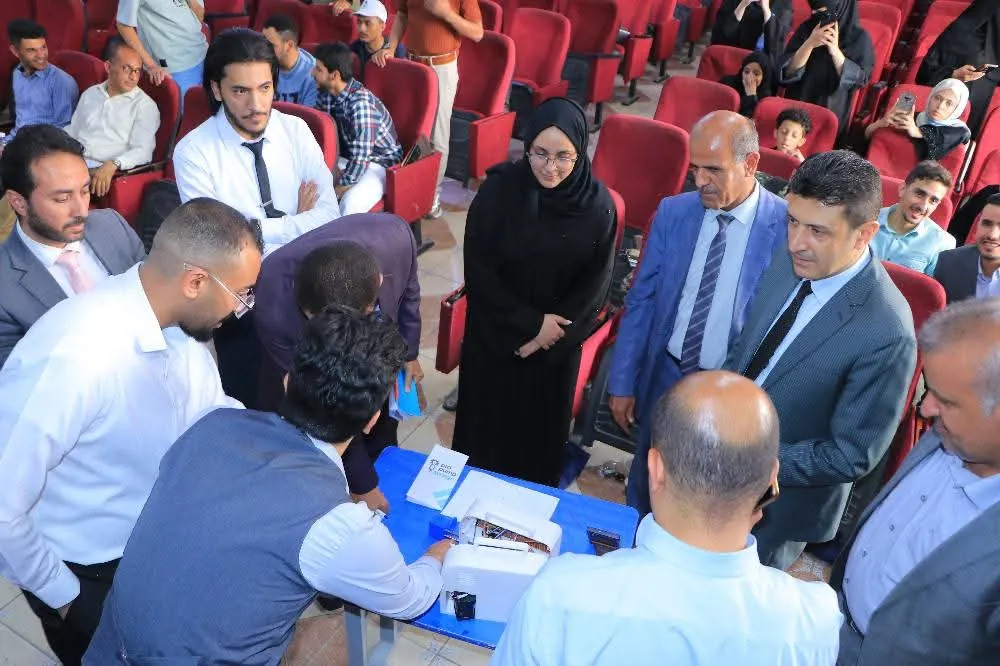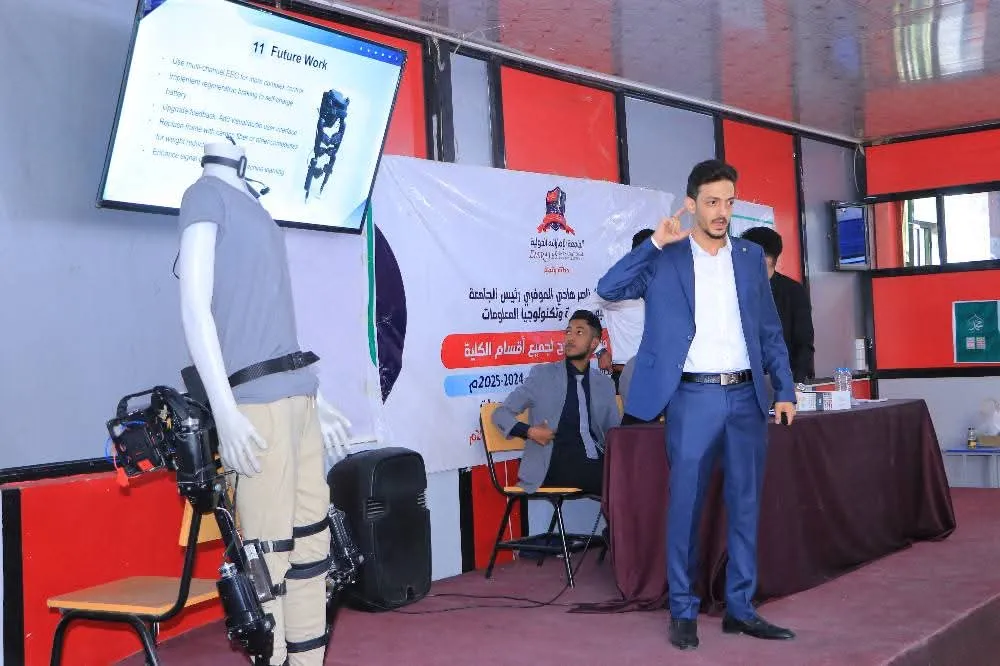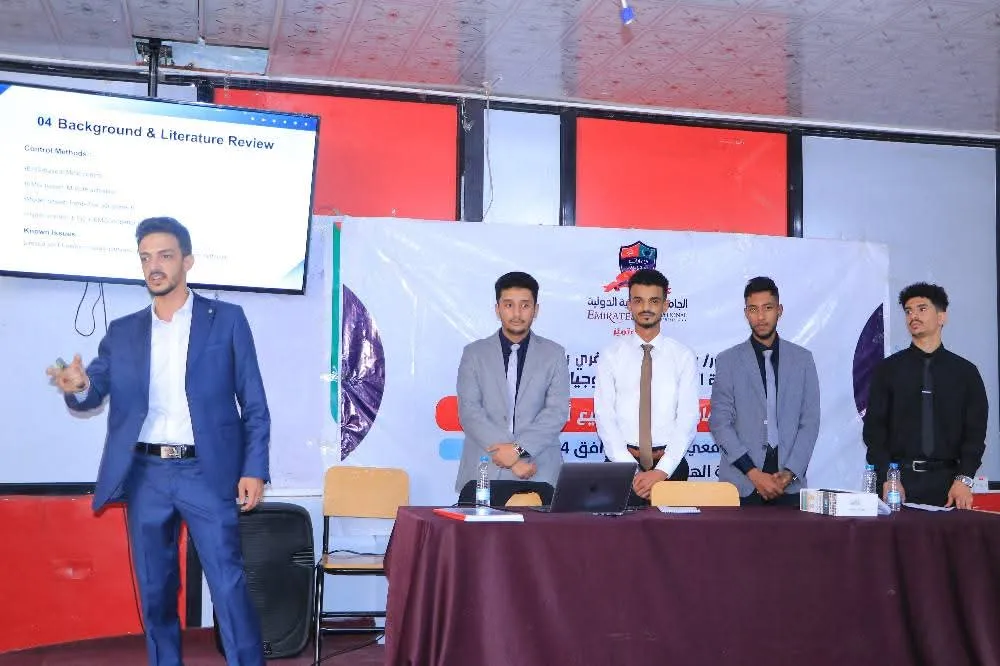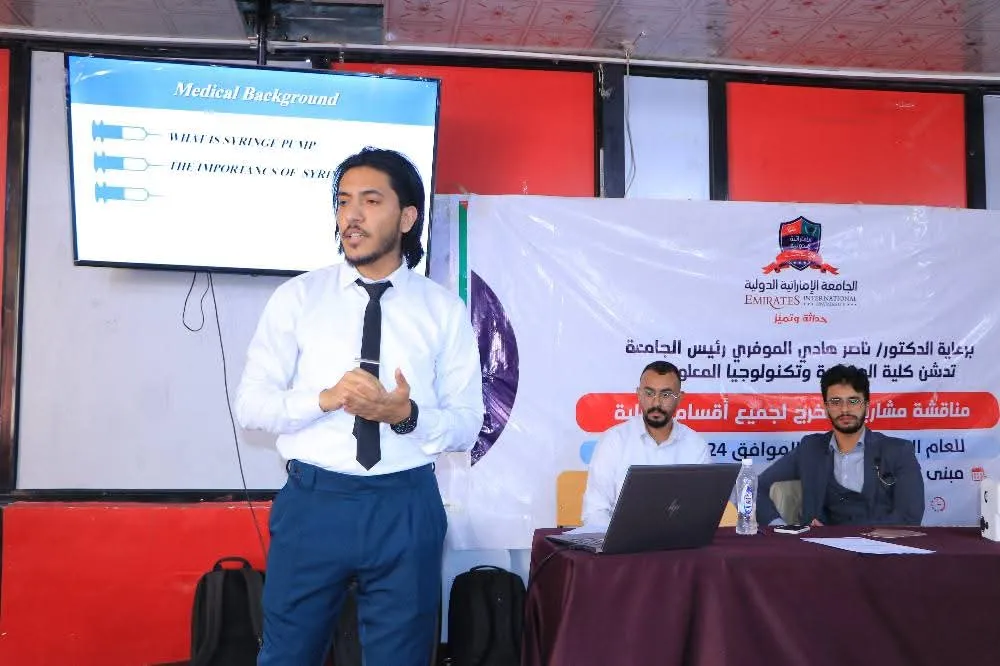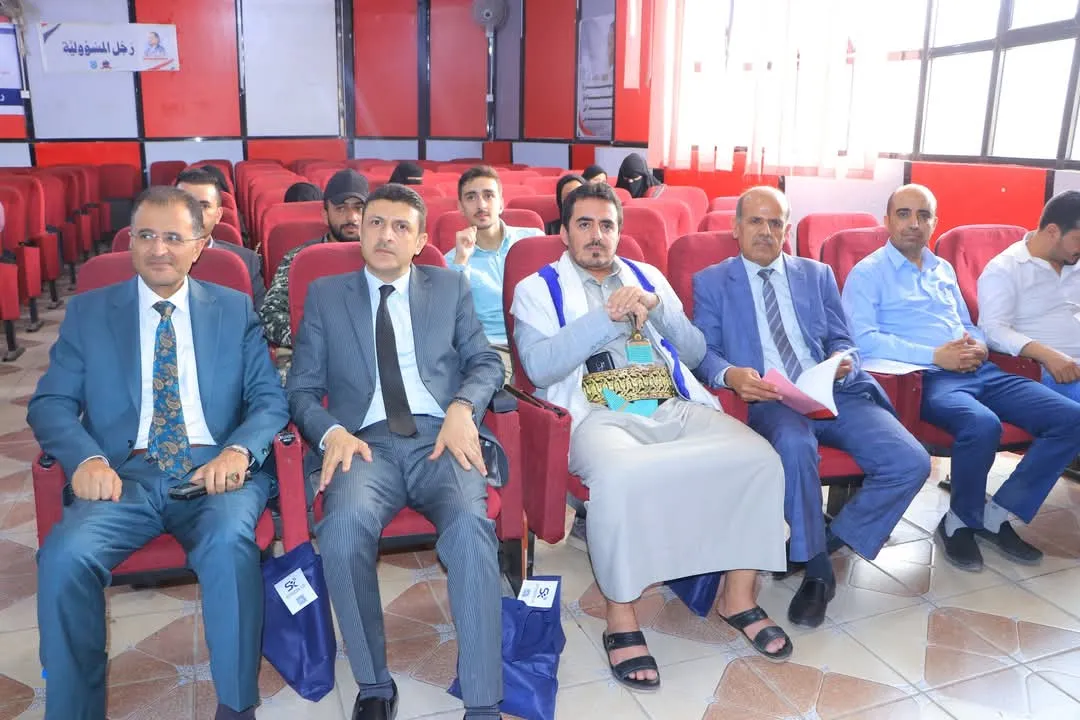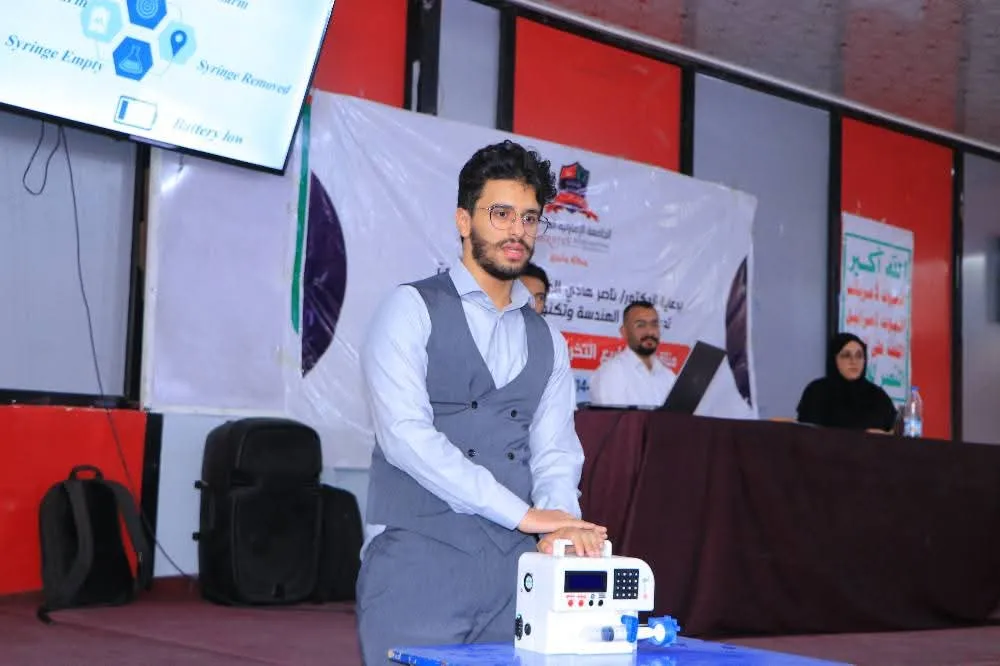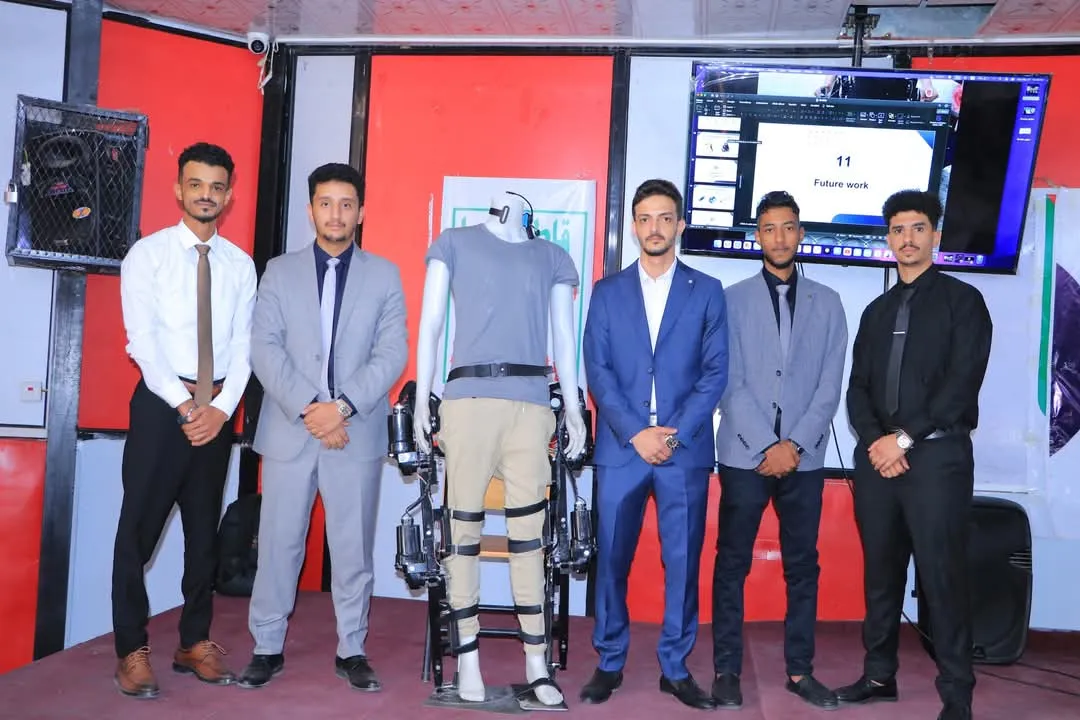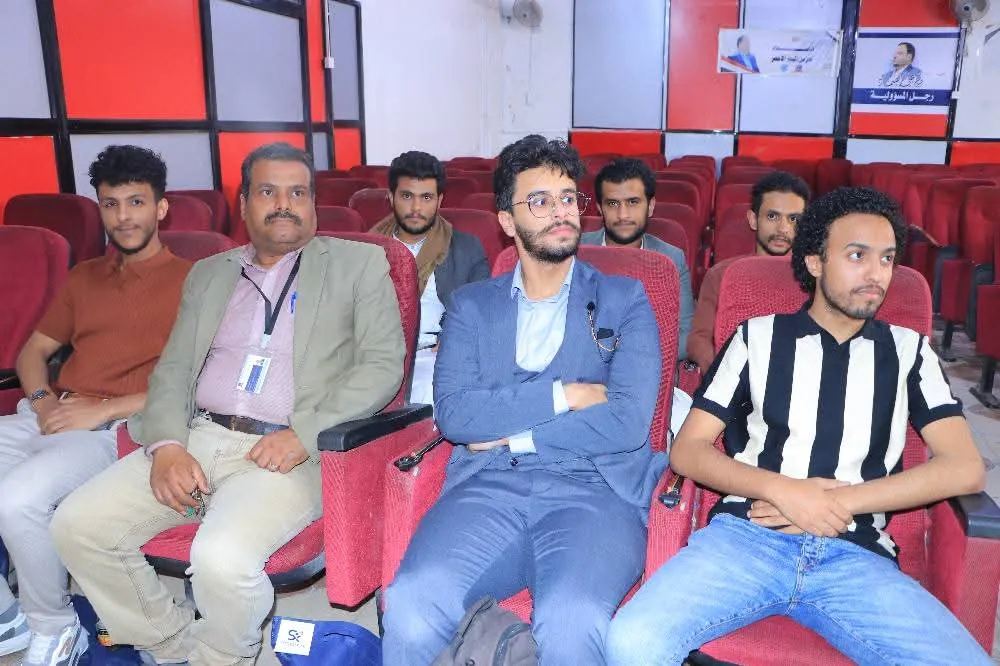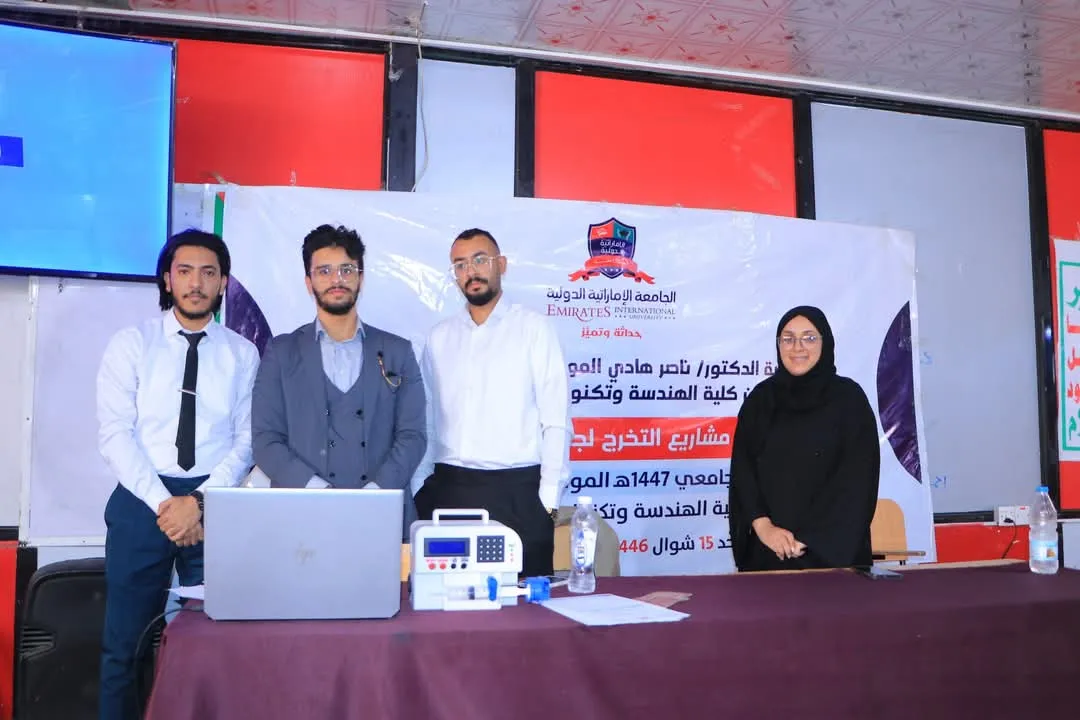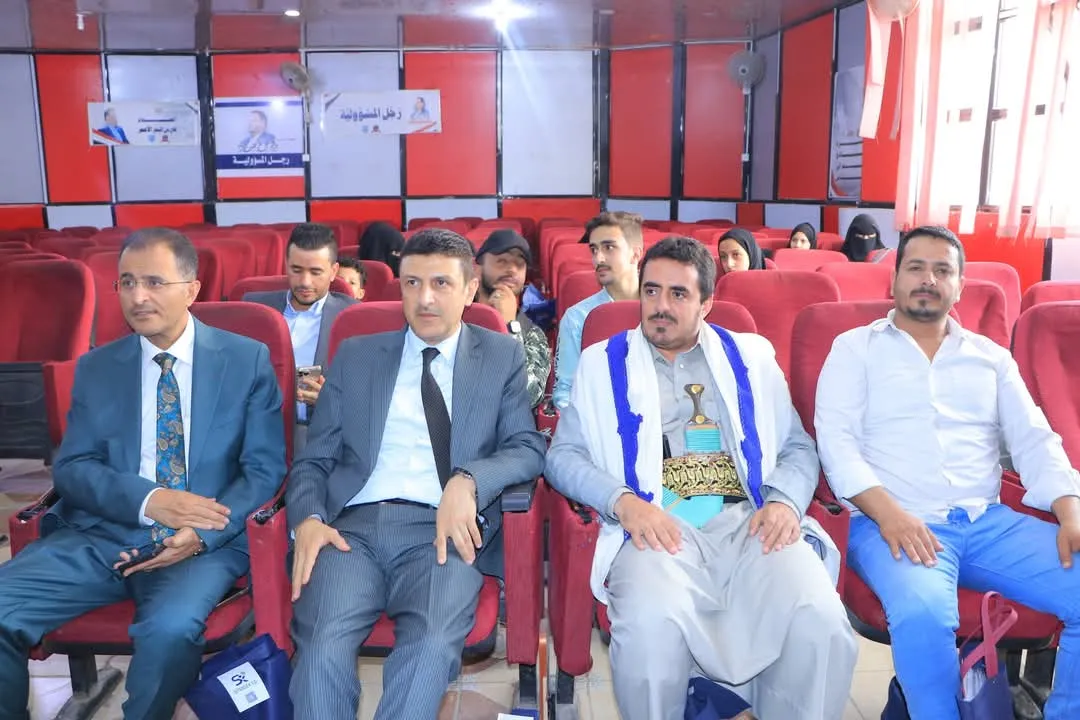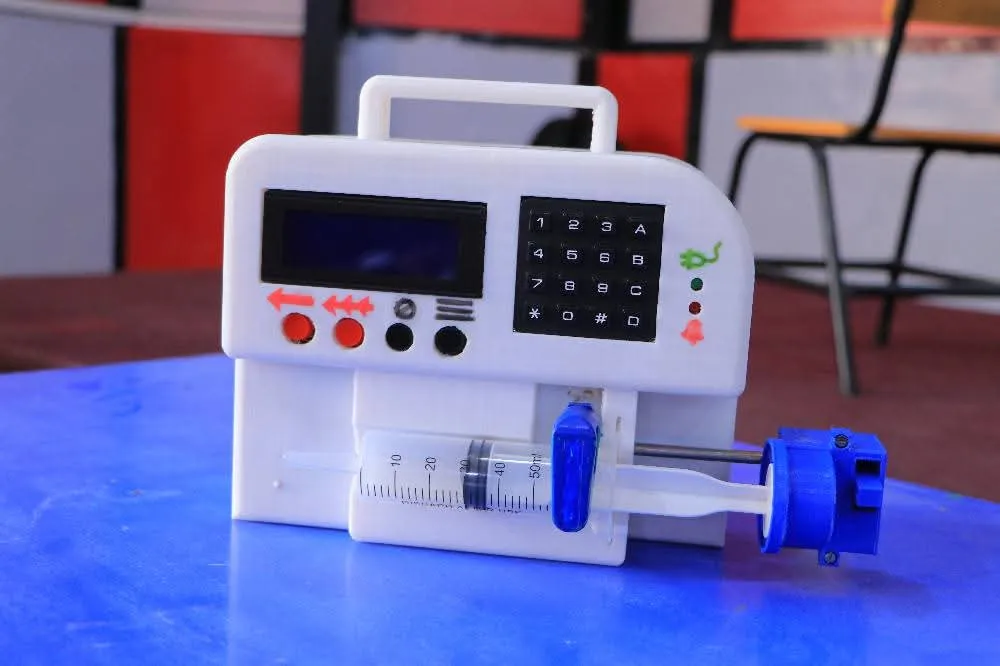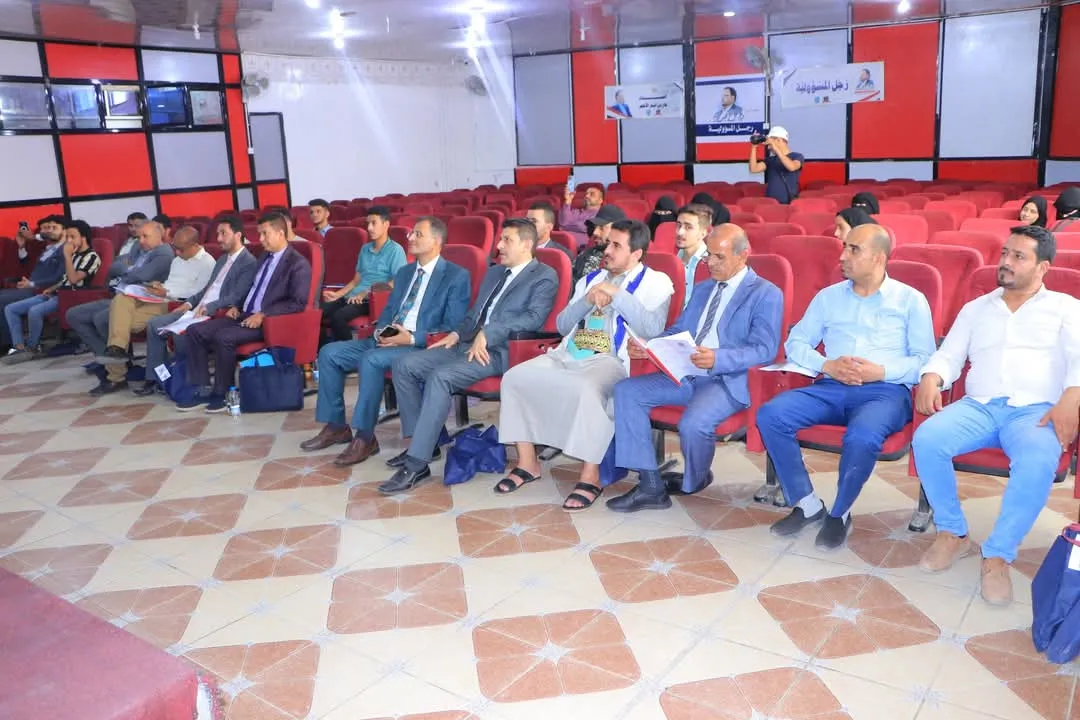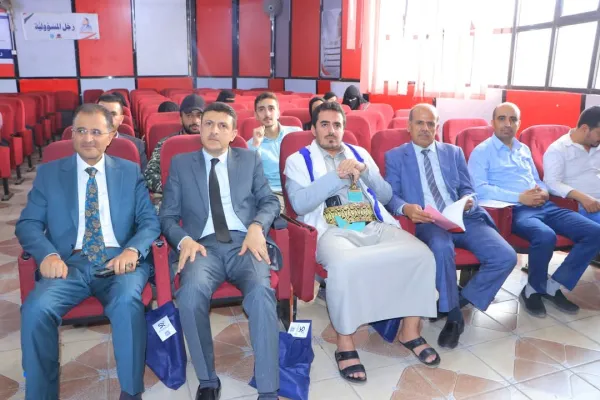
The Deputy Minister of Education commends the outcomes of the Emirates International University and the projects of its Biomedical Engineering students.
University Media
In a move that reflects the excellence and leadership of the Emirates International University in linking engineering education to the needs of society and providing innovative solutions in the medical field, the Deputy Minister of Education and Scientific Research, Dr. Hatem Al-Dais, witnessed the discussion of several innovative graduation projects by students in the University's Biomedical Engineering Department. The event was attended by a select group of academics and administrators, led by the University's Secretary-General, Dr. Fouad Ismail Hanash, and Dr. Fouad Hassan Abdul Razzaq, Executive Director of the Information Technology Center.
The first team of students presented a pioneering project entitled: "Designing an Electroencephalography-Controlled Locomotion System for the Lower Limb Exoskeleton to Assist Paralyzed Patients."
The team comprised students: Abdul Rahman Hatem Abdo Al-Dais, Ahmed Faris Mohammed Al-Arshi, Aseel Abdul-Mughni Ali Ghaleb, Abdul-Mawla Yaqoub Ahmed Al-Salwi, and Abdullah Saleh Al-Sanbi, under the supervision of Dr. Mushtaq Al-Azazi.
The project focuses on the design and implementation of a wearable exoskeleton that enables paraplegics to walk, stand, and sit by controlling movement using brain signals via a Mind-Wave EEG device. The system processes these signals via an Arduino Mega module, which controls DC motors attached to the hip and knee joints.
The exoskeleton is designed using a lightweight steel frame with adjustable parts to fit different sizes and operates in two modes: automatic neural signal control and manual remote control. Initial tests have demonstrated impressive motor efficiency and a comprehensive physiological response.
In the second project, another student team presented their project titled "Development and Design of a Low-Cost, Open-Source Syringe Pump Using Arduino Technology and a Stepper Motor."
The team includes students Abdullah Ali Fleita, Mukhtar Saleh Moawadah, Osama Tawfiq Al-Sharjabi, and Sala Muhyiddin Al-Dimashqi, under the supervision of Dr. Walid Al-Talbi.
The project addresses a technology gap in the education and scientific research sector, providing an affordable, programmable solution for use in laboratories. The pump uses an Arduino module to precisely control the movement of the plunger, allowing for selectable syringe sizes (10, 20, or 50 ml), automatic flow rate adjustment, and data display via an LCD screen.
The project represents an effective technical solution that supports educational and research institutions in resource-limited environments, without compromising accuracy or safety.
In his speech at the event, the Deputy Minister expressed his great admiration for the level of the projects and the students' skills, emphasizing that "Emirates International University has become a living example of an educational institution that graduates competencies capable of producing realistic solutions to societal problems and contributing to the development of the medical, technical, and other sectors in Yemen." He added that such projects represent a true embodiment of the concept of applied education.
For his part, Dr. Fouad Ismail Hanash, Secretary General of the University, welcomed the Deputy Minister and expressed the University's gratitude and appreciation for the Deputy Minister's interest and participation in the discussion of the university's students' graduation projects, which reflects the university's distinguished educational outcomes. He emphasized that these projects reflect the fruits of the university's academic vision and its commitment to graduating engineers who possess creative thinking skills and practical solutions. He added, "We are proud of our students, as they represent our community, and these outcomes represent a message of confidence to all who choose our university in the future." The discussion was attended by a number of academic and administrative staff from the college and university, including: Dr. Ibrahim Farea, Dean of the College of Engineering; Dr. Mohammed Al-Alafi, Head of the Department of Medical Equipment Engineering; Dr. Radwan Al-Badhiji, Head of the Department of Mechatronics Engineering; Dr. Jameel Rashid, Head of the Cybersecurity Department; Dr. Mushtaq Al-Azazi, Faculty Member and Supervisor of the Exoskeleton Project; and Dr. Walid Al-Talbi, Faculty Member and Supervisor of the Syringe Pump Project. The discussion was also attended by a number of academic staff, faculty members, their assistants, and a crowd of students.
It is worth noting that with each discussion of student graduation projects across the university's various colleges, the Emirates International University emerges as a pioneering model in providing high-quality education and distinguished outcomes that reflect an academic environment that encourages innovation and creativity. Student graduation projects embody the fruit of the integrated efforts of qualified academic staff and outstanding students, confirming the university's excellence in graduating qualified individuals capable of keeping pace with scientific developments and providing realistic solutions that serve society and meet the needs of the labor market.
Website:
https://eiu.edu.ye
#Emirati_International_University
#Modernity_of_Distinction
#EIU

